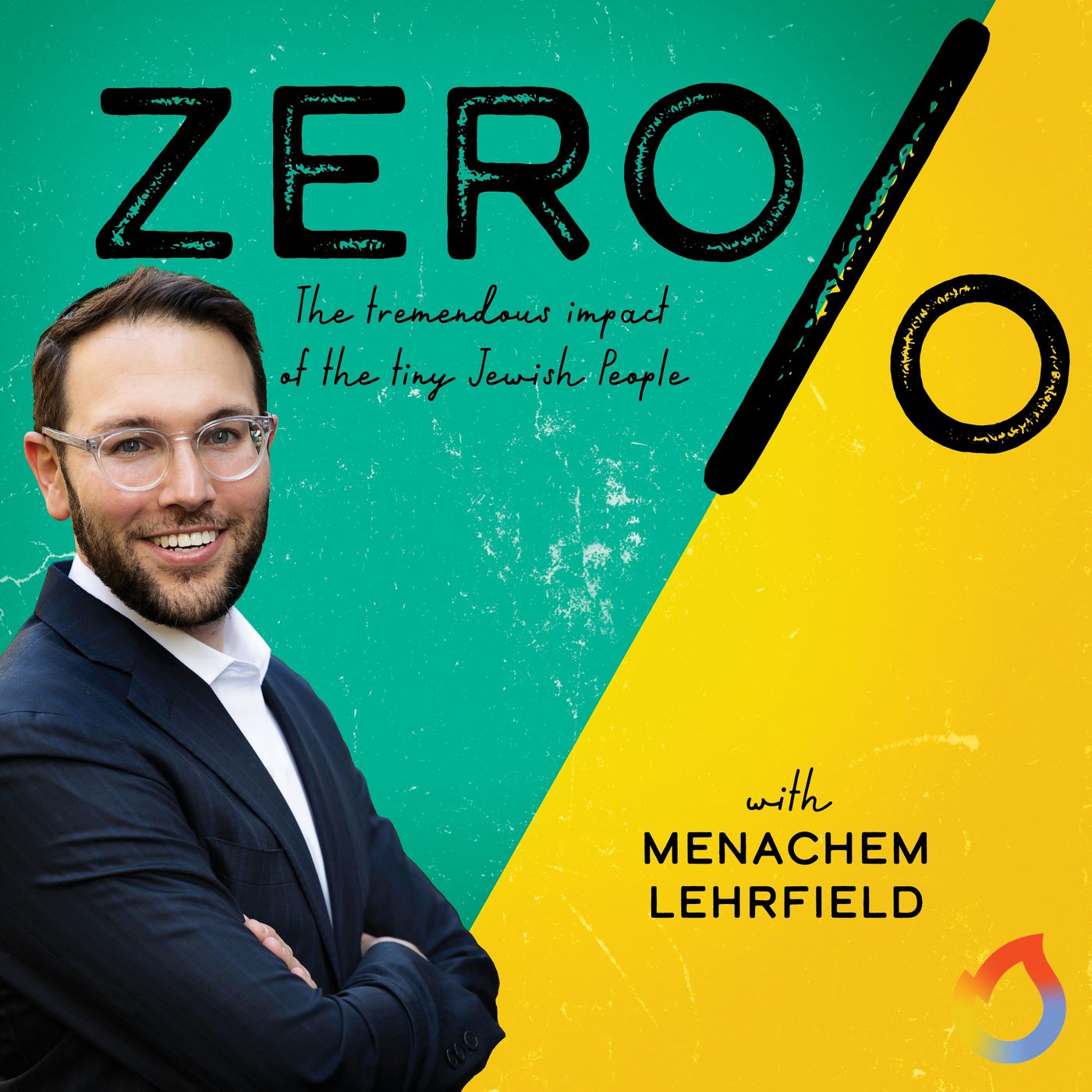13 - Tools on Loan
Description
In this episode we discuss how everyone can change, and we are not defined by our natural gifts, but by the effort we put forth.
I'm Menachem Iehrfield, and this is Zero Percent, where we explore world changing ideas. The past couple of weeks, we've been exploring the acronym, be free. Looking at Carol Dweck's growth mindset research from a Jewish perspective, seeing how we learn so many of these ideas and concepts through classic Jewish sources and topics of Jewish thought. We talked about the idea of be curious, asking questions, focusing on questions, constantly being open to learning and to acknowledging what we don't know as a way of learning more. Not just looking smart, but trying to be smart. We talked about the idea of enjoying the journey, embracing life's challenges and understanding that life is a process and life is a journey. And if we fail to recognize and focus on that journey and we're so overly consumed with the end result, we miss out on life. Ultimately, the end result is outside of our hands, so the journey is all we have.
We learned and focused on the idea that failure is not a permanent condition. I may make a mistake, but that doesn't mean that I am a mistake. Failure is where we learn the most. We learn from our mistakes. We grow from our mistakes. Mistakes are human, and they're not meant to be covered over and avoided, but rather acknowledged and learned from. We talked about the idea of recognizing the uniqueness of each person, how every single person is unique. How every single person, every [inaudible], every internal reality is different just as every pun of every face is different. And how no two people have ever looked completely identical, just as no two people are the same inside. Every person is different. Every person is unique and we need to approach people and especially our children as the unique beings that they are and not just make the assumption that everyone is the same and everyone needs the same thing.
We explore the importance of effort and understanding that effort is a key to mastery and not a sign of weakness. What truly matters is not how far I've come, what matters is how far I've come from where I started. And because effort is so important, and because effort is what defines who I am as a person, when I focus on effort, it helps me grow and become better and improve in every area of my life. We explained that the Jewish heroes are not the overnight successes. They're not the people who are born with tremendous intellect or charisma or power or wealth, but rather the person who worked as hard as they possibly could, the person who worked to achieve their success. And that leads us to our topic for today. This week, we're exploring the idea that everyone can change.
Because effort is a key to mastery, the more effort I put in, the more I reach a level of mastery. And as a result of that, I am not defined by my natural gifts or the way I am right now. I am defined by the effort I put forth. I am the sum total of the choices I make based on the difficulty of those choices. There's a Calvin and Hobbes clip that Carol Dweck includes in her book Mindset, where Susie's studying and Calvin comes up to her and says, "What are you doing, homework?" And she said, "I wasn't sure I understood this chapter so I reviewed my notes from last chapter and now I'm reading this." So Calvin looks at her surprised and says, "You do all that work?" And she says, "Now I understand it." And as Calvin walks away, he mutters to himself, "Huh? I used to think you were smart."
Calvin's response is indicative of a culture where we are so convinced that people's value and worth is based on their natural abilities. And in his mind, if you were smart, you wouldn't need to try. You wouldn't need to study. And the very fact that you're doing so shows that you don't have the natural gifts to do it on your own. That is a classic fixed mindset way of looking at the world and...
More Episodes
Published 04/21/24
Published 04/19/24
Published 04/19/24


